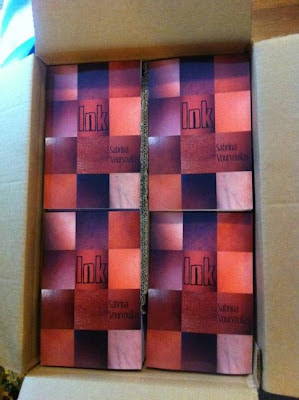Actually, writing isn't hard. It is mostly a goofily joyful experience.
Getting published, on the other hand, can be all kinds of miserable. Especially, if you happen to write speculative fiction that doesn't adhere to beloved (and worn threadbare) tropes, or if your writing style and protagonists are far from the default that the dominant culture assumes. Latino writer Daniel José Older has written eloquently about this and related topics on Salon and Buzzfeed.
As it happens, fairly early in his career, Older was published in the first iteration of Crossed Genres magazine, and subsequently the book side of CG published his acclaimed collection of short stories, Salsa Nocturna.
That first iteration of Crossed Genres magazine also published early work by Chinese-American SFF writer Ken Liu, whose work has gone on to be recognized with Nebula, Hugo and World Fantasy awards.
While Older and Liu may be some of the best-known of the magazine's alums, CG has a rare eye for talent, and many emerging writers have been published in the pages of its anthologies, its first magazine, and the newer version of Crossed Genres magazine (which is a Science Fiction and Fantasy Writers of America professional qualifying market), including Teresa Jusino, Priya Chand, Anthony Cardno, Shay Darrach, Athena Andreadis, A.J. Fitzwater, Kelly Jennings, Ibi Zoboi and many others.
All distinct and distinctive writers with one thing in common: they knock the default right out of speculative
by challenging expectations.
So, anyway...
Crossed Genres has three days to go on a Kickstarter campaign that will enable them to continue publishing the pro-rate magazine for another year and become self-sufficient. I don't tend to enjoin my friends and readers to support kickstarters, but I believe speculative fiction needs magazines and presses exactly like CG — you know, the ones that see the past, present and future with you and me in it.
I plan to support Crossed Genres and I really hope you will too. (Need that kickstarter link again? Here you go.)













































